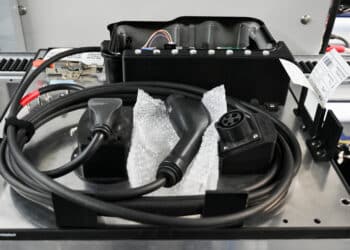Ford’s Exit From U.S. Car Space Could Mildly Boost Used Market

Ford Motor Co. announced the cancellation of its various U.S. sedan models last week to focus on more popular SUV and truck segments, and whether the move is a win for the company or not, it could positively impact the used-car segment more generally.
“We see the downside at this point being relatively small and in fact, there could be some upside potential,” Laurence Dixon, senior director of business development for J.D. Power valuation services, told Auto Finance News. “By taking that volume out of the market it’s obviously going to reduce used supply for mid-size cars, large cars, and even some compact cars and that’s generally going to be supportive of used vehicle prices.”
Trucks, SUVs, and crossovers comprised 65% of new-vehicle sales in 2017 whereas cars made up just 35%, he said. Values for Ford Fusion, Focus, Taurus, and Fiesta were already “below average” due to this general shift toward larger vehicles, and Dixon doesn’t expect those values to drop significantly lower than they already are. In fact, there is some potential upside.
“It’s not as if Ford won’t be able to take care of these vehicles and service these vehicles for a long time to come,” Dixon said. “You’ll have a used Fusion that’s in the market for some time to come that’s a highly competitive product. … These are really nice cars and they are and will continue to be of value for consumers moving forward.”
One thing that could damage their value is incentive spending, Joe Halovanic, vice president of RVI Analytics, told AFN. Despite Ford’s efforts to continue to service the vehicles, consumer perception plays a big role in the values.
“What will wind up happening is that consumer demand will fall for these cars as people realize they are being discontinued, then at that point Ford will raise the incentives in order to generate more interest in the vehicles,” said Halovanic. “However, this won’t be as bad as when GM killed off the Pontiac or [other full-line] brands entirely, because this is just specific vehicles.”
Eric Ibara, director of residual values for Kelley Blue Book, is more optimistic on incentive spending because there’s no immediate need to push those sedans off the lots if there will be no 2019 models to replace them, he told AFN.
“[If there are no more incentives] we would expect little to no impact on auction values and residual values,” Ibara said. “What is unknown is if, for whatever reason, Ford chooses to blow them out — I can’t imagine why they would choose to do so — but, if they were to add more incentives on them then it would be detrimental for used car values.”
Representatives from all three of these companies will be speaking at the Auto Finance Performance and Compliance Summit next week on a panel entitled “Collateral Values: How Much Will Collateral Values Drop?” The event is held at the Omni Dallas from May 9-10. For more information and to register, click here.







